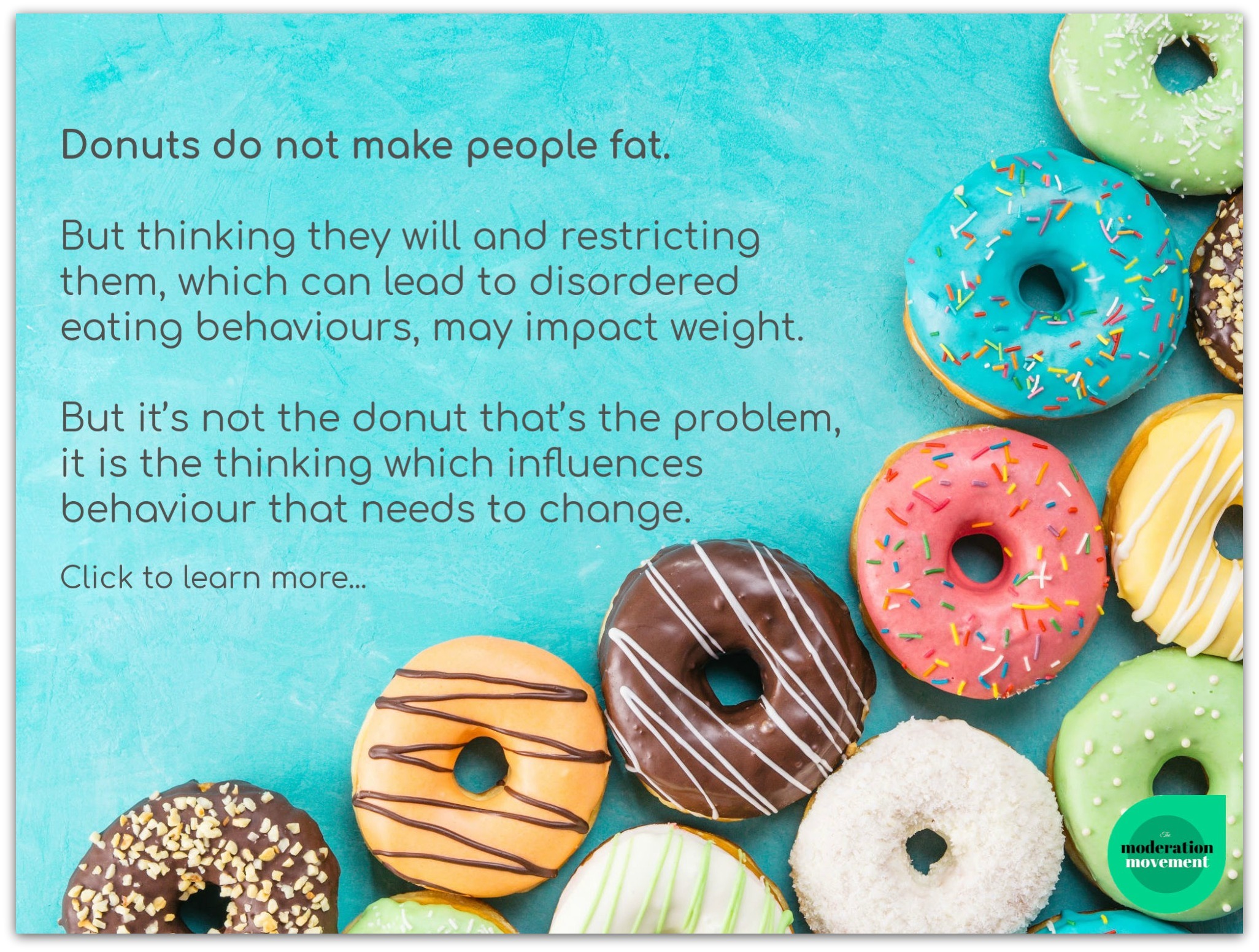Donuts do not make people fat.

As many of my posts are, this post was inspired by a client this week who loves donuts but avoids eating them as she’s worried they will make her fatter. She was lamenting how she wasn’t able to enjoy freshly made donuts at a market with her friend, and how it was ok for her friend because she’s thin. My clients very typical diet mentality meant not only was she missing out on a key aspect of health (experiencing pleasure and connecting with friends), but it also meant she found herself over-eating whenever she ate sweets and thought she was “addicted” to sugar.
Donuts do not make people fat.
But thinking they will and restricting them, which can lead to over-eating (this goes for any food), may impact weight*. But it’s not the donut that is the problem or needs to change, it is the thinking which influences behaviour that needs to change.
Not everyone who chooses to restrict certain food finds themselves feeling “addicted” to that food or over-eating it, but for many people, this is what happens. After all, it is human psychology to want what you can’t have and restriction can result in – as the sayings go – “the forbidden fruit effect”, “deprivation driving desire” and “the last supper effect”.
When a food is off limits it is more enticing (forbidden fruit effect) and when faced with the “forbidden” food people can experience the last supper effect – “This could be the last time so I’ll eat as much as can” – or – “I may as well have it all now and I’ll be good tomorrow”. Sound familiar?
Time and time again in my practice I see people discover that are able to enjoy their “problem” foods or “weaknesses” without going nuts and eating the whole lot and that they can leave certain food in the house without eating it all. In fact, a common scenario once people stop restricting and stop thinking about the food as a “weakness”, is they buy the food, enjoy a little and then forget it’s even there!
For many people, a tendency to over-eat certain food is driven by more than just restriction. Not eating enough during the day and altered emotional states are also key and very common drivers. All of these need to be addressed in order to foster a healthy relationship with food free from distress, guilt and shame. If you feel you need help with this, I urge you to seek help from a dietitian/nutritionist trained in the non-diet approach and who works within the Health At Every Size (HAES) paradigm.
*Note: weight changes are actually far more complex than just over-eating. If a person gains weight from appearing to over-eat, we massively over-simply the issue when just focusing on food. Again, working with a dietitian/nutritionist trained in the non-diet approach will allow you to explore this in more depth.
